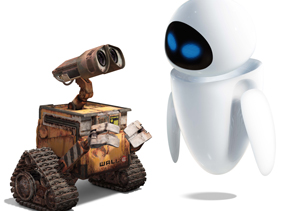I think that people often mistake queer femmes who "look straight" as a positive thing for them...that they can blend into the straight world and have the opportunity to not have to come out to coworkers or at job interviews or whatever, which is true. But at the same time they face criticism from the lesbian community...because they "look straight"...and they don't have to deal with the same kinds of discrimination that butcher women have to deal with because they're "passing".
The same is true for more masculine gay men.
I was at a workshop yesterday by a group called Translate who came to talk to BMC dorm leaders about trans students on campus. One of the things that one of them was talking about was that the way that people express their gender identity can often cause alienation from a specific group. This guy's name was Hadley, and he thought of himself as gender-queer, and chose to express his gender identity as neither completely feminine or completely masculine. He said that when he went out with his female, lesbian friend, they both dressed very similarly, and so his friends often assumed that since she was hanging out with him, that she was trans too. That upset her, because she has just always thought of herself as a butch lesbian and wanted people to view her as such.
So I guess my point is that the way people choose to express their gender identity can lead to invisibility within certain groups...and that it's often very confusing and hurtful....especially for queer femmes because they have to deal with coming out over and over again to people in the dominant society who (usually) don't have as much understanding of queer culture.
I know that personally I've gone through wanting to change my personal appearance. Sometimes I really want to look feminine to kind of prove to straight society that lesbians can look feminine too. That we're not just all bulldykes riding motorcycles and wearing flannel shirts. Because that's what people think lesbians are. I came home right after I had come out and a friend asked me, "Oh, so you're not dressing gay yet?"
What is dressing gay?
Like...seriously.
And I know it wasn't meant to be offensive...but it kind of was. I didn't really know what to say so I just made it into a joke. I could've gone off on a tangent about how gender expression is something totally different from sexual orientation but I was too tired. Sometimes when I'm not at Bryn Mawr and I'm not around a group of people who I know will understand and appreciate what I'm saying then I just don't say it.

But other times, I want to embrace my "gayness", I guess. I want to look like a lesbian. I want people to recognize my identity. I don't want to be invisible. But something I'm constantly struggling with is how I want to express my gender identity. I don't really know what I want to look like. And that's okay for now.
So what was my point? I guess that this issue is very complicated. And that just because you "dress like a straight woman" (whatever that means) doesn't mean you won't face discrimination as a queer woman. It might mean that you face less discrimination on a day to day basis. Society is certainly harder on butch women. But because queer femmes are always accepted without question into the straight world, it can be really alienating. You can always feel like people don't know the "real" you. You constantly have to decide whether or not to come out. For the rest of your life. And without a peer group of other queer femmes, I imagine you'd be extremely lonely.


